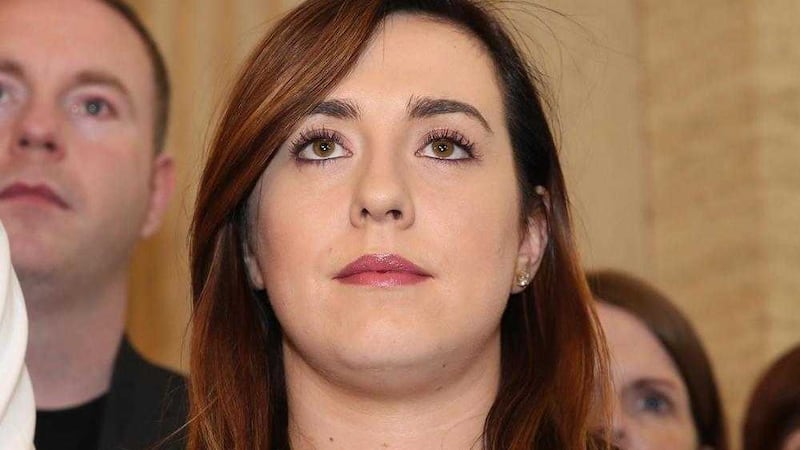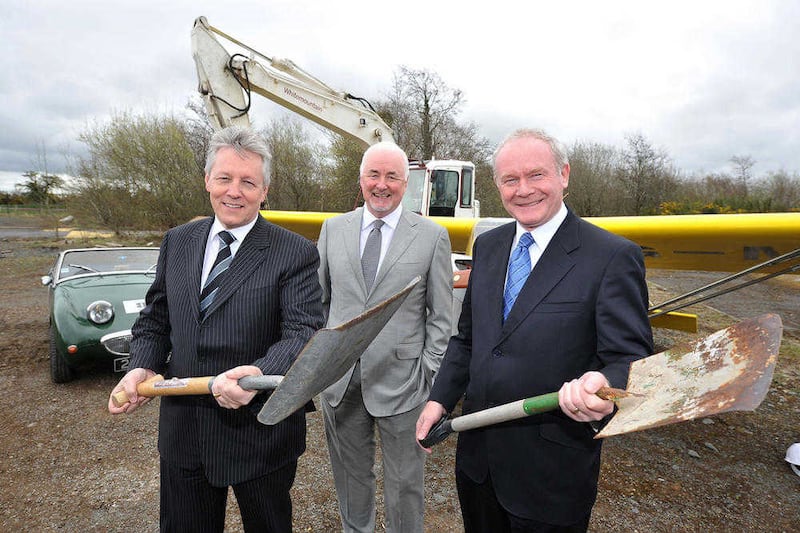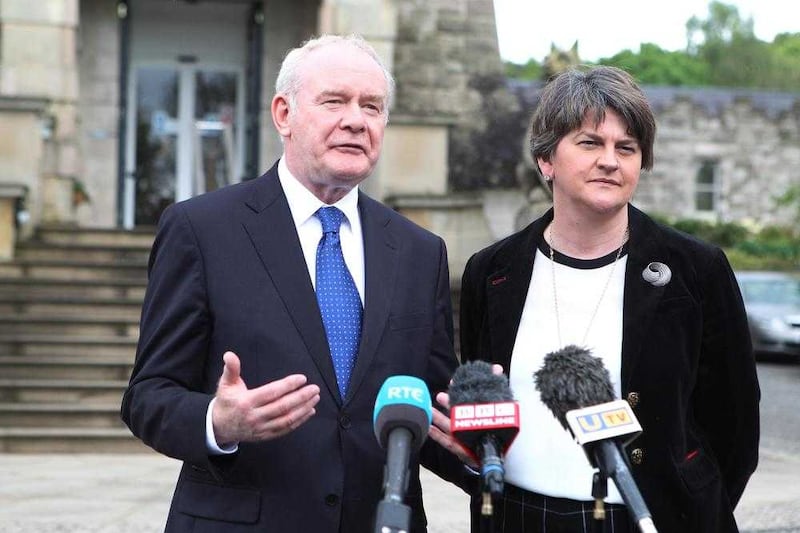THE Executive Office at Stormont has no plans to cut staff despite a significant reduction in its responsibilities.
The department previously known as the Office of the First Minister and Deputy First Minister (OFMDFM) has seen many of its functions transferred to other departments.
The new Department of Communities takes on the bulk of the policy areas which would have previously been the responsibility of OFMDFM, including initiatives involving older people, young people and the disabled. It will also lead efforts to tackle poverty and have policy responsibility for gender and sexual orientation.
Responsibility for Stormont's childcare strategy has moved from OFMDFM to the Department of Education, while the Department of Finance is now responsible for NI Direct's central editorial team and the government advertising unit.
However, despite the streamlining of its operations, the Executive Office will see no reduction in its workforce of 284, which includes eight special advisers.
Speaking in the assembly on Monday, Junior Minister Megan Fearon confirmed that staff levels would be unaffected by the reorganisation of Stormont's departments.
The Sinn Féin junior minister acknowledged that the Executive Office's responsibilities had been scaled back but said it still covered a wide range of functions and that the ministers' workload had not been reduced.
"Much of our work also facilitates the business of the executive and of other ministers and their departments," she said.
But the SDLP's Colin McGrath said it was "incredible" that against a backdrop of cuts to welfare and public services, the first and deputy first minister still needed "two junior ministers, eight special advisers and a small fleet of cars".
He described the Executive Office as a "shell" of the former OFMdFM and claimed the department's eight special advisers cost the taxpayer around £4m over the five-year mandate.
"There is just no way to justify spending over £4m on junior ministers and special advisers while people in our communities feel the worst excesses of executive austerity," the South Down MLA said.
"It’s very clear that the first and deputy first ministers will put their own interests ahead of the interests of people who are struggling."
Ulster Unionist Roy Beggs said: "I don’t think it would be unreasonable to expect a reduction in the number of functions to lead to a reduction in the number of special advisers in the Executive Office."








